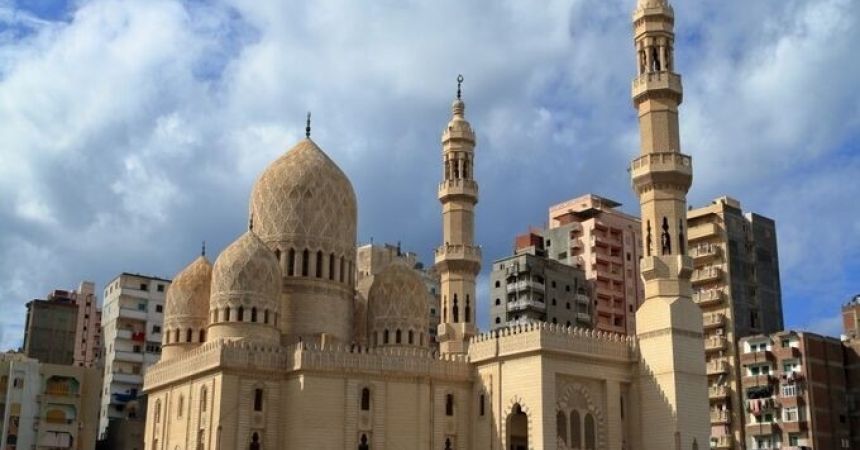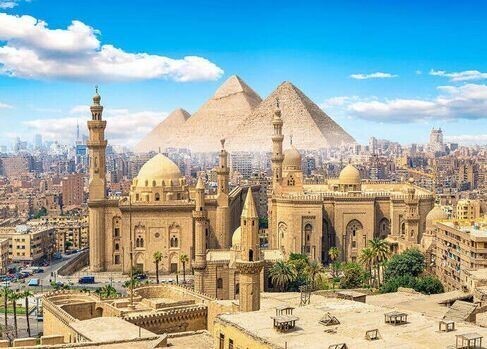
Visiting Egypt During Ramadan – Travel Tips & Insights
Ramadan, the ninth month of the Islamic lunar calendar, is the holiest month in Islam and is observed by Muslims worldwide. During this month, Muslims fast from dawn until sunset, abstaining from food, drink, and other physical needs. In Egypt, Ramadan is more than just a religious observance; it’s a deeply ingrained cultural event that affects nearly every aspect of life. If you’re planning to visit Egypt during Ramadan, it’s essential to understand how this month impacts daily life, the best ways to experience the country during this period, and how to be respectful of local customs.
Understanding Ramadan in Egypt
Ramadan in Egypt is a time for reflection, spiritual growth, and community. For Muslims, it’s a period to strengthen their faith through fasting, prayer, and acts of charity. The daily rhythm of life changes significantly during Ramadan, and visitors should be aware of how this might affect their trip.
Fasting from Dawn to Sunset
During Ramadan, Muslims refrain from eating or drinking from dawn until sunset, which can be a significant adjustment. The fast is intended to promote self-discipline, empathy for the less fortunate, and closeness to God. Once the sun sets, the fast is broken with the meal called Iftar, and the pre-dawn meal before the fast begins again is known as Suhoor.
As a visitor, if you are not fasting, you are free to eat and drink throughout the day, but it’s essential to be respectful of the people around you. Eating or drinking in public during the fasting hours is considered disrespectful, so be mindful of local customs.
Ramadan Nights: A Time for Celebration
After sunset, Ramadan transforms into a time of socializing, family gatherings, and celebrations. Streets are lined with lights, and there is a palpable sense of excitement in the air. People gather with family and friends to enjoy Iftar, and the city comes alive with special events, including Taraweeh prayers (special evening prayers during Ramadan), cultural festivals, and food markets. In major cities like Cairo, you’ll notice a blend of religious reverence and festive energy.
How Ramadan Affects Daily Life in Egypt
While Ramadan is a deeply spiritual time, it also has practical effects on daily life in Egypt. From altered business hours to changes in public behavior, here’s what you need to know about how Ramadan impacts the country.
Altered Business Hours
Many businesses, including shops, restaurants, and government offices, adjust their hours during Ramadan. While some shops close earlier in the day, others open later, often staying open well into the night after Iftar. Shopping malls and restaurants may open at unusual hours, often staying open late into the evening and night.
In general, the workday tends to be shorter, and some businesses may close for a few hours during the day. Expect delays or shorter working hours in certain services, so it’s a good idea to plan ahead and adjust your expectations.
Restaurants and Cafes
While many restaurants and cafes are closed during the day for the fasting period, you will find that after sunset, they come alive with crowds celebrating Iftar. Some restaurants cater to tourists and may remain open during the day, but it’s polite to avoid eating or drinking in public places, such as on the streets or in parks, where people are observing the fast.
Iftar Buffets and special Ramadan menus are popular in hotels and upscale restaurants, offering a wide range of traditional Egyptian dishes like koshari, molokhia, fatta, and dates to break the fast.
The Streets During Ramadan
Ramadan significantly changes the pace of life in Egyptian cities, especially in Cairo. During the day, the streets can feel quieter than usual, with many people staying indoors to rest during the heat or preparing for Iftar. As the sun sets, the city comes to life with celebratory energy. Expect large crowds in public spaces as families and friends gather to break their fast, and a festive atmosphere fills the air. Streets and homes are often adorned with lights, and special Ramadan decorations are commonly displayed.
Things to Consider While Traveling During Ramadan
Ramadan is a special time to experience Egyptian culture and traditions. However, there are a few important considerations to keep in mind to ensure you have a respectful and enjoyable visit.
Respecting Local Customs and Etiquette
Avoid Eating, Drinking, or Smoking in Public: It’s important to be discreet about eating or drinking, especially during the day. If you need to eat or drink, do so in private places like your hotel room or a designated tourist restaurant. Smoking is also discouraged in public places during the fasting hours, so try to avoid it out of respect for the fasting locals.
Dress Modestly: While this is always a good practice in Egypt, it’s especially important during Ramadan. Many Egyptians view the month as a time for heightened spirituality, and dressing modestly is a sign of respect for their traditions and values. Women should cover their shoulders and avoid wearing short skirts or dresses. Men should avoid wearing sleeveless shirts.
Be Mindful of Prayer Times: Egypt is home to beautiful mosques and vibrant prayer communities, and during Ramadan, Muslims pray more frequently. The Taraweeh prayer, a special nightly prayer offered after Iftar, takes place in mosques and other places of worship across the country. If you visit a mosque or religious site during this time, be mindful of prayer times and ensure you are not disturbing the worshippers.
Show Respect for the Fast: While you are free to eat and drink as a non-Muslim, it is important to be aware that many Egyptians will be fasting. Consider the sensitivities of the local population and avoid flaunting your food or drinks in public.

Breaking Your Fast (Iftar) with Locals
One of the most special aspects of Ramadan in Egypt is the tradition of breaking the fast with family and friends. If you are invited to an Iftar meal, it is an honor and a unique cultural experience. Iftar meals are typically communal, and Egyptians go out of their way to welcome others, even visitors, to join in the celebration.
Here’s what to expect at an Iftar:
Dates: It’s traditional to break the fast with dates and a glass of water before moving on to a full meal.
Generosity: The Iftar meal is abundant, with various appetizers, main dishes, desserts, and drinks. You’ll likely find an array of traditional Egyptian dishes such as koshari, fatta, stuffed grape leaves, and kunafa (a delicious dessert made with noodles and syrup).
Warmth and Hospitality: Egyptian hospitality is legendary, and during Ramadan, the sense of community and generosity is amplified. Even if you’re a stranger, it’s not uncommon for Egyptians to invite you to join them for Iftar, especially in smaller towns and villages.
Check for Special Ramadan Events
Ramadan is a time of community and celebration, and there are many special events that take place throughout the month, particularly in Cairo and other large cities. Some of the most popular events include:
Ramadan Nights: During Ramadan, many cultural centers, hotels, and cafes host Ramadan Nights, where guests can enjoy traditional music, food, and entertainment. This is a fantastic opportunity to immerse yourself in local culture and experience Egypt’s unique Ramadan festivities.
Cultural Festivals: Some cities hold Ramadan festivals with musical performances, storytelling, and performances of traditional folklore.
Shopping and Markets: Ramadan is also a time for special markets, especially for food, where you can find ingredients and dishes that are unique to the season. The Khan El Khalili Bazaar in Cairo, for instance, is beautifully lit during Ramadan, and you’ll find vendors selling traditional sweets, lanterns, and other Ramadan-themed items.
How Ramadan Affects Tourist Attractions
While Egypt’s tourist attractions remain open during Ramadan, there are a few things you should keep in mind:
Reduced Hours for Some Sites: Some historical sites and museums may have shorter hours or be more crowded due to the later evening prayers. Always check in advance to confirm opening times.
Crowds During Iftar and Evening Hours: Expect more crowded conditions in the evenings, especially in popular areas like the Pyramids of Giza, Islamic Cairo, and the Nile River banks. The evening hours, after Iftar, are the prime time for Egyptians to visit these sites and socialize, so plan accordingly.
More Peaceful During the Day: During the daytime, many locals take naps or rest in preparation for Iftar. This can be an excellent time to explore tourist attractions like the Egyptian Museum, the Citadel, or the Cairo Opera House, as they tend to be quieter compared to the evenings.
What to Eat During Ramadan
Egyptian cuisine is incredibly rich and diverse, and during Ramadan, special dishes are prepared to break the fast. If you’re visiting during this time, here are some of the must-try foods and drinks:
- Iftar Dishes:
- Koshari: A comforting dish made with rice, lentils, pasta, chickpeas, and a rich tomato sauce, often topped with fried onions.
- Fatta: A traditional dish of rice, bread, and garlic, often served with meat or lamb.
- Stuffed Grape Leaves: Grape leaves stuffed with rice, vegetables, and meat, seasoned with lemon and herbs.
- Molokhia: A savory soup made from finely chopped molokhia leaves, garlic, and coriander, typically served with chicken or rabbit.
- Ramadan Sweets:
- Kunafa: A sweet pastry made from shredded dough, filled with cheese or nuts, and soaked in syrup.
- Basbousa: A semolina cake soaked in sugar syrup, often served with a dollop of cream or coconut flakes.
- Qatayef: Sweet dumplings stuffed with nuts or cream, a popular dessert during Ramadan.
- Drinks:
- Qamar al-Din: A sweet apricot juice often consumed to break the fast.
- Jallab: A refreshing drink made from dates, grape molasses, and rose water.
- Karkadeh: A hibiscus tea, served hot or cold, known for its vibrant color and tangy flavor.
Visit Cairo: Gateway to Egypt’s Wonders
Vacation in Egypt during Ramadan is a unique and deeply enriching experience. The atmosphere is charged with religious devotion, celebration, and community spirit, offering travelers a chance to witness Egypt’s rich cultural and spiritual traditions up close. While Ramadan may bring about changes in daily routines, with a little understanding and respect for local customs, you can fully immerse yourself in the special atmosphere of the holy month.



